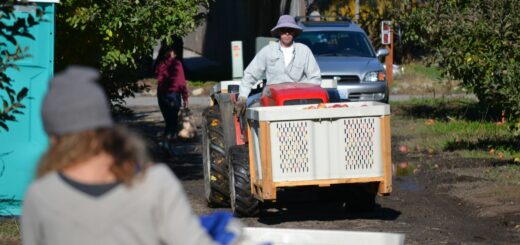Local charities will be challenged by new tax rules: We’ll need to help them
Community building at its most effective happens when there is a spirit of shared experience and caring. This is something that has been part of the DNA of communities in North Central Washington.
We see this in the way businesses as well as individuals from all walks of life support efforts to alleviate poverty and suffering, encourage and develop the arts, and a myriad of other causes.
It is to our credit that we have thus far resisted, to a great extent, the disturbing trend in our society to put selfishness at the center of existence.
I’m confident we will continue finding ways to find balance between individual accomplishment and the growing needs in our community to support for those less fortunate.
However, doing so is going to be more challenging thanks to the recent tax law changes that strip the incentives for making charitable contributions from middle class Americans.
Under the new rules, only the wealthiest will be able to qualify for the charitable tax deduction. Middle-income donors will no longer have that option.
This effectively creates a disincentive for middle income earners to contribute to charities, and that is expected to impact most significantly social service agencies who receive a significant amount of support from a lot of people giving smaller sums of money.
Nationally, organizations like the United Way, the Salvation Army and the U.S. Conference of Catholic Bishops opposed the tax law because of the potential negative consequences on philanthropy.
No one is suggesting that giving will cease but removing the incentive will without a doubt reduce the amount and the timing of giving. It’s going to make it tougher for our nonprofits.
Local nonprofit leaders I talked to, including Dorry Foster of the YMCA, Abel Noah of Confluence Health Foundation, Sara Urdahl of United Way, and David Davin of the Wenatchee Valley College Foundation predict that this will impact charitable giving. We’ll have to wait and see how big an impact this will have.
According to a recent Washington Post story, gifts from individuals made up nearly three-quarters of the $390 billion donated to charities in 2016. The number of people who qualify for the charitable tax deduction is expected to fall from 30 percent of filers to about 5 percent.
Any action that makes it more difficult to solve problems locally through charitable giving should concern all of us. We need to be particularly concerned about the potential impact on social service agencies that help people in meeting basic needs.
There’s nothing to be done about this change in the tax law. The law, supported by congressmen Dave Reichert and Dan Newhouse, is a done deal.
What we can do as a community is monitor the impact and find new ways to support our nonprofits going forward and meet the needs of those most vulnerable in our midst.
Regardless of what they do in Washington D.C., we will find a way for our community to thrive.


